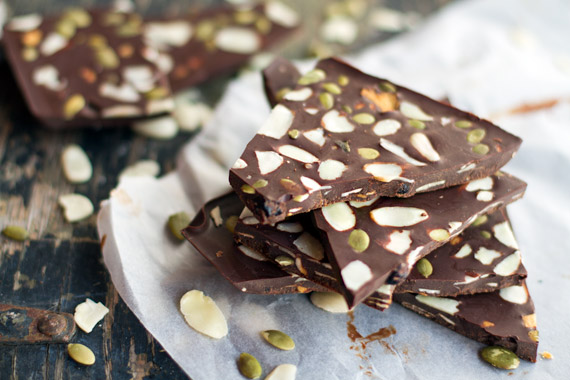

Most packaging will include a recommended “best by” date for cocoa powder.Cocoa powder, when stored properly, will last several years.Cocoa powder is a tasty baking ingredient, and it also includes several beneficial nutrients.Storing cocoa powder in a cool, dark, and dry location in an airtight container will extend its shelf life. Refrigerating or freezing cocoa powder will cause humidity in the container, which can lead to mold growth. One would maybe think that freezing or refrigerating cocoa powder will make it last longer, but it will actually have the opposite effect. Cocoa powder should be kept away from any sources of moisture. Shop our Cacao & Hazelnut spread, our Chocolate Bundles which feature cacao powder, as well as cacao nibs, and our delicious Cacao Breakfast SuperBoost.Moisture will cause cocoa powder to change in consistency, clump, and go bad faster. Unlock another dimension of flavour in all your favourite recipes and get your daily boost of antioxidants, potassium, iron and magnesium from some of our favourite products powered by Cacao. Why not explore the treasures cacao powder has to offer? So, any recipe that uses cocoa powder can also use cacao powder.Ĭheck out these delicious cacao-boosted vegan recipes for Cacao Lucuma Brownies and No-Bake Chocolate Pralines! So, the question is, can you swap cocoa for cacao? And the answer is a definite YES! Because the major difference lies within their nutrient profiles, they can be used interchangeably. This makes it perfect for creating deep chocolatey flavours. On the other hand, cacao has a deeper and richer taste. On the other hand, Cacao powder has gone through minimal processing and is roasted at low temperatures to preserve its nutrients.Ĭocoa is actually slightly more mellow than cacao due to the processing and alkalizing that cocoa goes through to achieve its mass-market taste. In addition, cocoa is often mixed with additives and preservatives to reduce its bitterness, increase its shelf life and achieve a flavour suitable for the mass market. As a result, cocoa tends to be less nutrient-dense and therefore loses the incredible health benefits associated with cacao beans. However, cocoa powder is roasted at extremely high temperatures and goes through an alkalizing process, altering the molecular structure of its nutrients and destroying certain compounds within the powder. The product is then cold-pressed to remove cacao butter. The fermentation process develops the distinguished chocolate flavour which is further enhanced during the roasting process. The major difference between cocoa and cacao powder lies within their processing after the beans have been harvested.īoth go through roughly the same steps of natural fermentation, roasting and cold pressing. We source our high-quality Cacao from a fair-trade supplier in Africa, assuring that it maintains a vast range of other nutrients and minerals such as potassium, iron, magnesium, fibre. The tree produces large pods containing around 40 beans. You may have also heard of cacao, but perhaps thought it was just another word for the same chocolatey powder with a couple of letters rearranged.Īlthough Cacao and Cocoa come from the same origin, there are significant differences between the two, especially when it comes to their nutritional content.Ĭocoa and Cacao both originally come from the beans of the Theobromacacao tree which translates from Greek to “food of the gods”.

You’ve definitely heard of cocoa you add it to brownies and chocolate cakes and it’s the key ingredient in chocolate. What’s the difference between cocoa powder and cacao powder? This is one of the most common questions we get asked at Naturya and what better time to give you the answer than during Chocolate Week!


 0 kommentar(er)
0 kommentar(er)
